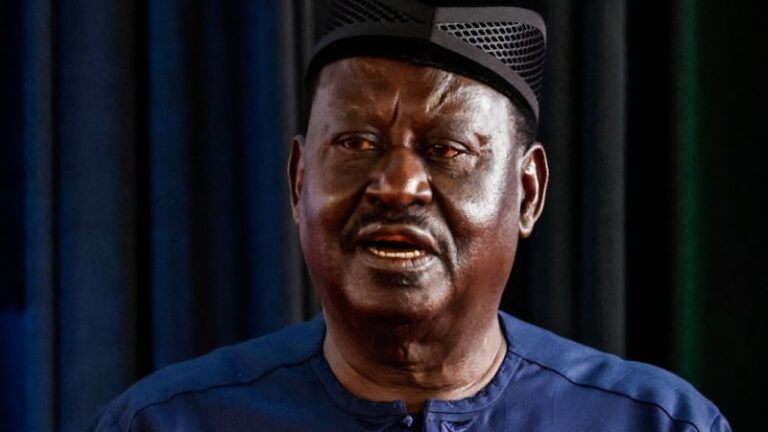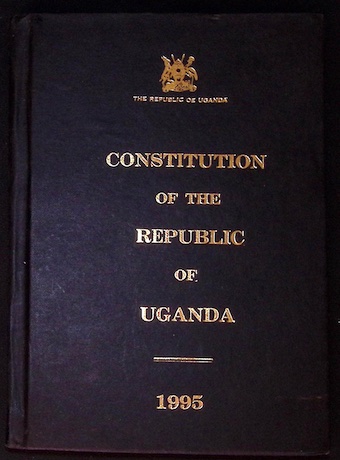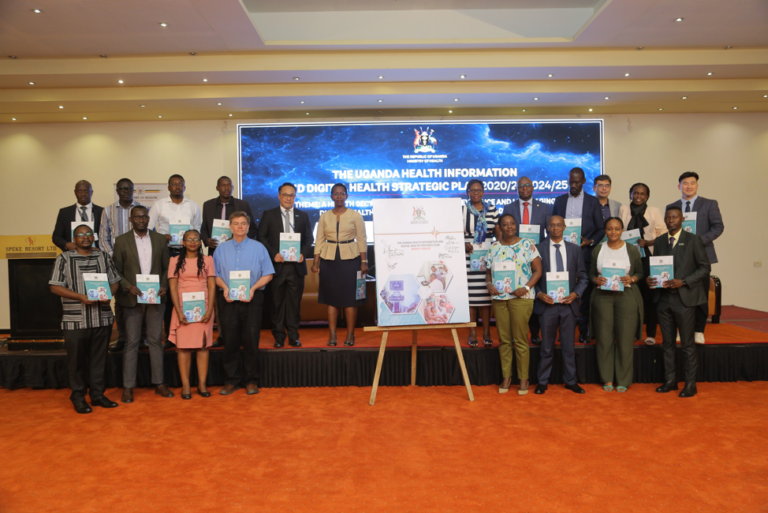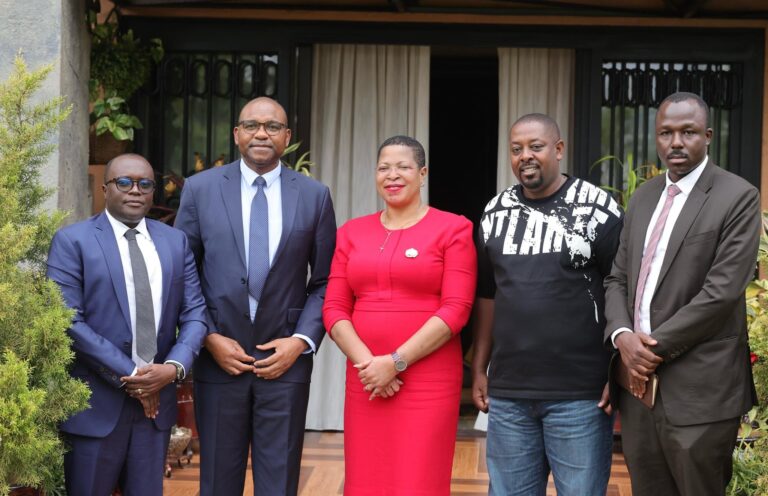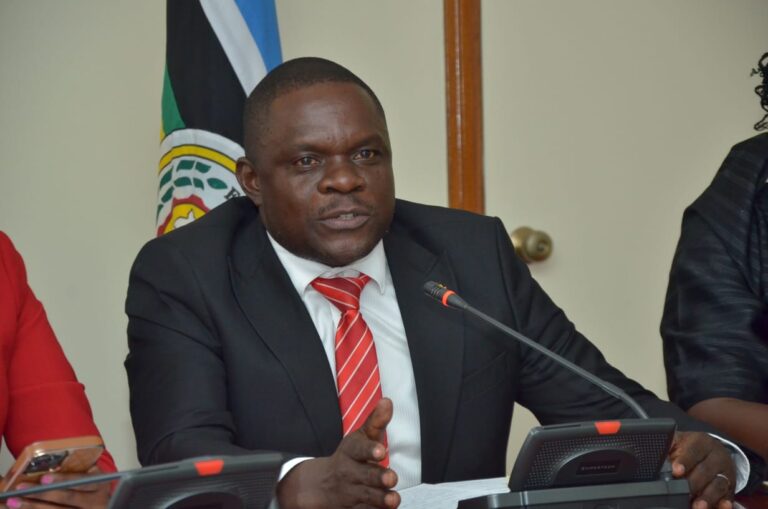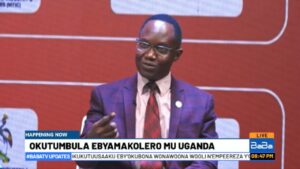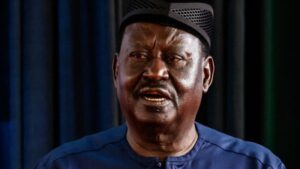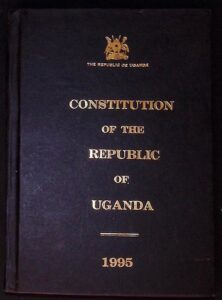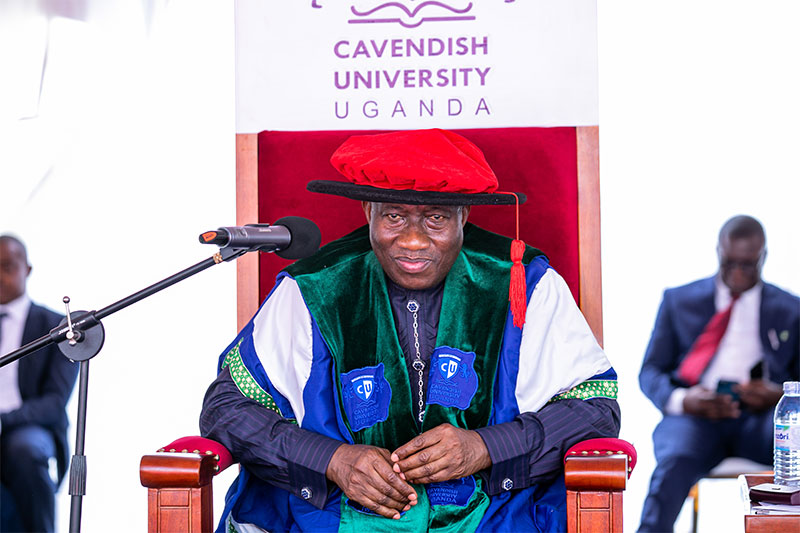
“As Cavendish University sends 1,000 graduates into Uganda’s workforce, experts weigh in on how AI skills could reshape the nation’s employment landscape.”
Kampala — Nearly 1,000 students are set to graduate from Cavendish University Uganda on 21st August 2025 at Munyonyo, in a ceremony expected to draw national and regional attention. The event will be graced by H.E. Goodluck Ebele Jonathan, former President of the Federal Republic of Nigeria, serving as Chancellor, highlighting the university’s regional influence.
Cavendish, which also awarded 33 new scholarships today at the university — part of 65 given in 2025 — used the occasion to spotlight the role of higher education in producing graduates who are both employable and entrepreneurial. Parents like Semakula Joseph Ndugwa, whose son will pursue Law under the scholarship program, welcomed the opportunity: “Paying tuition is not easy. I am very happy for this offer. My child’s dream will now come true.”
Yet beyond scholarships, the reality for many graduates remains sobering. According to Cavendish’s own tracking, 56% of its graduates were employed in 2023, rising slightly to 61% in 2024. That still leaves nearly four in ten struggling to secure work.
AI and the Changing Labor Market
Speaking at the event the Vice Chancellor Cavendish University says Artificial intelligence is not only transforming how universities teach — it is also reshaping the global labor market. Automation and AI technologies are displacing traditional roles across sectors ranging from administrative work to finance and professional services. Forecasts suggest that up to 60% of today’s jobs could diminish within the next decade, raising urgent questions about the relevance of traditional degrees.
In education, AI has enabled personalized learning, data-driven assessment, and automated grading, allowing lecturers to focus on developing critical thinking and problem-solving skills. Students now have the tools to create content, simulate real-world scenarios, and collaborate globally — skills increasingly demanded by employers.
The Employability Challenge
Uganda, like many African countries, faces a stark youth unemployment crisis. Analysts warn that unless universities align more closely with industry needs, higher education risks producing graduates who are unprepared for the AI-driven economy.
The Ministry of Education has piloted an Exit Program focused on soft skills and employability training. While some academics argue it waters down traditional university education, others insist it is necessary in a world where employers value adaptability, creativity, and digital fluency over rote learning.
Competency-Based Education: A Solution
Globally, universities are turning to competency-based education to bridge the gap. Cavendish, for example, incorporates AI in case studies and project-based learning to ensure students graduate with practical, marketable skills.
Across East Africa, Rwanda’s polytechnic and TVET reforms are cited as models for hands-on training. These initiatives emphasize skills over theory, preparing students for real work environments and reducing the mismatch between education and employment.
More Than Gowns
As Cavendish graduates the 14th cohort with graduates from 47 different nationalities, the message is clear: higher education is at a crossroads. Scholarships may expand access, but unless universities embrace AI, technology, and employability-focused curricula, many graduates will find themselves unprepared for the evolving labor market.
Education experts say the lesson is simple: for universities in Uganda and beyond, it is no longer enough to celebrate the gown. The real test is whether graduates can thrive in a world where AI is rapidly reshaping both education and employment



